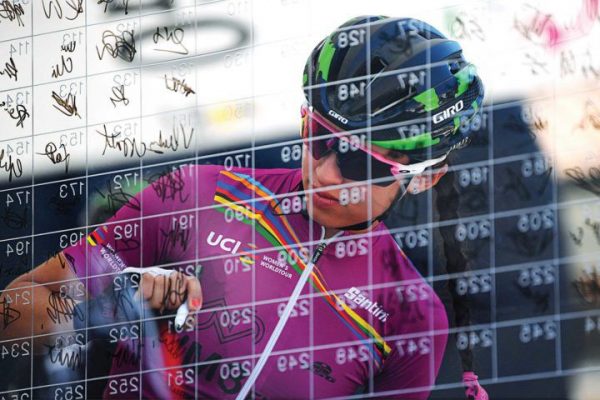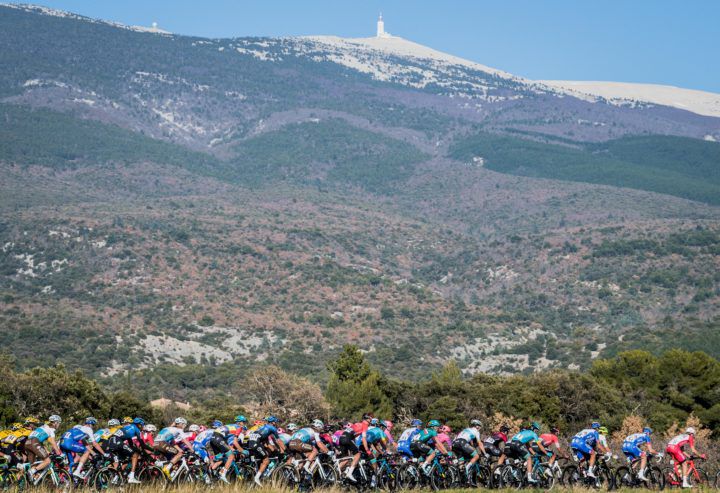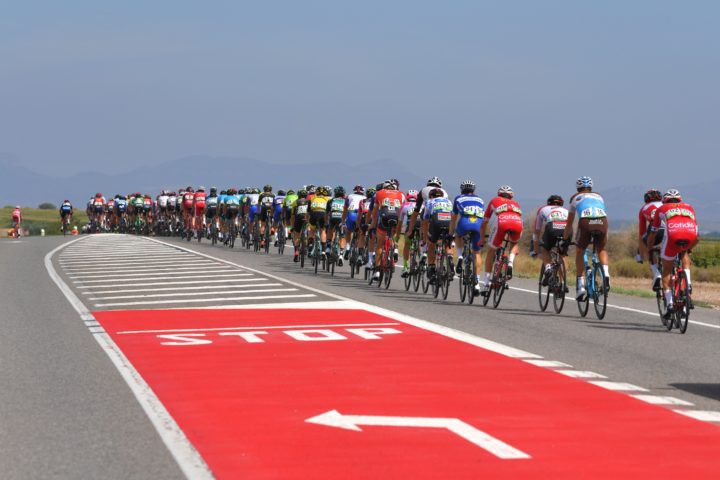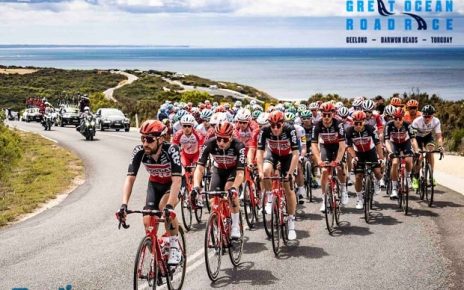Consensus is building for a calendar spanning from July through November, as UCI tries to build a racing roadmap while satisfying varying interests.
Racing until the end of November? That’s one scenario gaining traction as stakeholders try to salvage something of the 2020 pro cycling season.
Sources confirmed to VeloNews that officials are looking at extending the racing calendar into late November, in a quest to find room for as many races as possible.
Behind the scenes, the UCI and other key players are trying to fit together the pieces of the puzzle to resume racing in the second half of 2020, if and when the coronavirus crisis breaks. Organizers are desperate to see their events rescheduled, but it’s becoming obvious — even in the best-case scenario that health authorities lift coronavirus lockdowns and quarantines by July — that every race cannot be accommodated.
Sources say there is agreement that the Tour de France is the linchpin of any resumption of racing, with grand tours and one-day monuments seeing priority in the rescheduling push.

“We cannot condense six months of racing into two,” RCS Sport CEO Paolo Bellino told La Gazzetta dello Sport. “Important choices have to be made. I don’t think they can use normal parameters. I expect extraordinary decisions for an extraordinary period.”
On Wednesday, the UCI confirmed racing is suspended until June 1, with the Critérium du Dauphiné as the latest race to be canceled. Officials huddled with teams and organizers on conference calls Wednesday to begin stitching together a roadmap for a new-look racing calendar that would stretch from July to November. The postponement of the Tokyo Olympic Games until 2021 opens up a big hole on the calendar, giving officials wiggle room to try to find space.
Everything depends if and when the world pandemic eases, and health authorities give the green light for professional bike racing to resume.
One idea gaining traction is to delay the Tour de France by one month, and have it start in late July instead of late June. At least for now, the Tour de France is sticking with its scheduled date, June 27 to July 19. Race owners ASO indicated they will make a decision by May 15 — and insist it won’t hold the race without fans.
“I’d be lying if I said we’re not considering other propositions,” said Tour race director Christian Prudhomme. “We can confirm we will not want to have a Tour de France ‘behind closed doors.’”

The Vuelta a España, scheduled to begin in the Netherlands on August 14, and continuing through September 6, could be held entirely inside Spain, starting a week after the Tour. The Giro d’Italia, which already has dropped its planned start in Hungary, would be slotted into the calendar later in autumn, possibly after the road world championships in Switzerland, La Gazzetta dello Sport reported.
The monuments and other select races would be slotted into holes from late summer through the fall. The milder autumn weather in Spain and across southern Italy and France, in October, would allow racing to be extended into late November. Teams are asking the UCI to ease rules on how many riders and teams could are in a revised calendar.
One condition that riders have been insisting on is that competition resumes at least one month before any grand tour. Many riders in Italy, Spain, France and Andorra are sitting idle, and do not want their first race back to be a grand tour.
“If athletes aren’t on the road by May, there’s no way you can run a competition in June,” said Mitchelton-Scott sport director Matt White. “You can’t have the Tour de France as the first race. That doesn’t work for the riders – simple as that. In the next four-to-five weeks, it’s crucial that the virus infections come down to a very low level in Europe. At the moment we’re not seeing that, and I would think that as it stands at the moment, it would be pretty hard to run the Tour de France at the current dates, starting at the end of June.”
Even the best-case scenario of racing again in July is made doubly difficult without being able to know if and when health authorities will deem it appropriate to return to some semblance of normal life. Most of Europe remains in lockdown, with Italy and Spain facing the strictest conditions where the public is ordered to stay inside, while other nations, such as Belgium and Switzerland, still allow cyclists to ride outdoors.

Cycling is facing an unprecedented disruption from the coronavirus pandemic, with racing grinding to a halt since Paris-Nice in mid-March. More than 250 races have been canceled worldwide. Teams are already reducing salaries and laying off staffers.
All stakeholders agree that a resumption of racing in safe conditions is in everyone’s interest. Racing again this season could mean the difference between staying solvent or closing doors for some teams and races.
“We hope we will see racing,” said Richard Plugge, manager of Jumbo-Visma. “Cycling is the sport of hope and expectation. If we can race, that would say the crisis is either gone or under control.”


